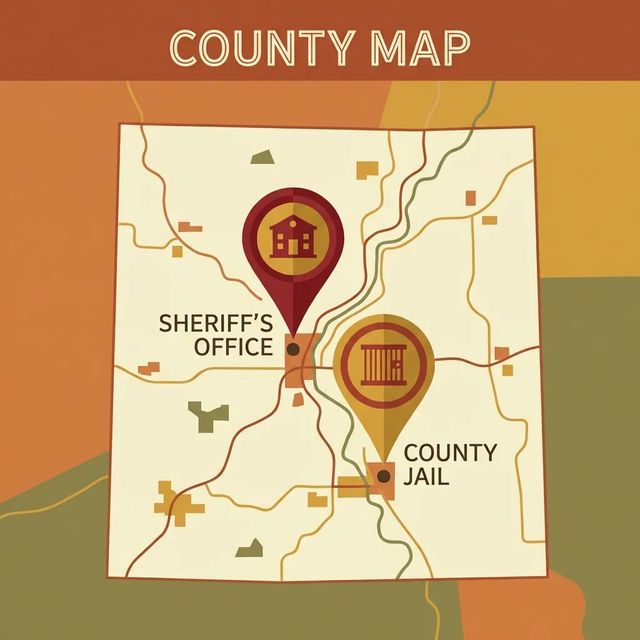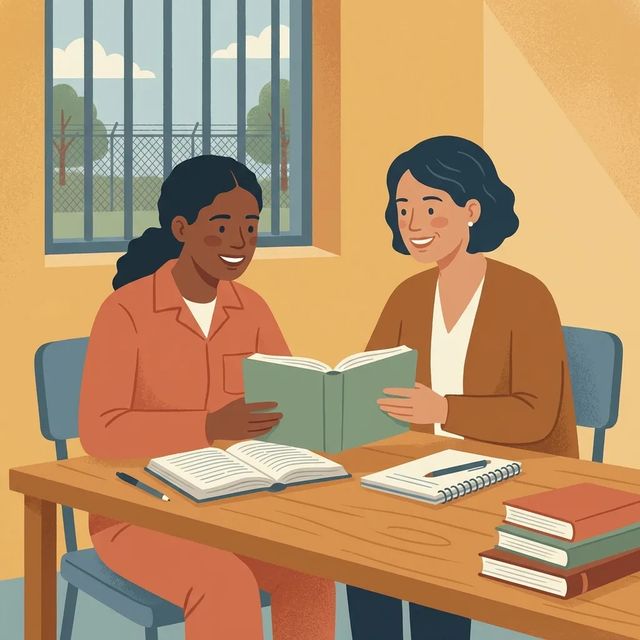Bibb County Correctional Facility
Need to reach someone at Bibb County Correctional Facility? Look up an inmate, send messages or mail, add commissary funds, or schedule a visit.
Explore
Find an Inmate at Bibb County Correctional Facility
Search for a loved one and send messages and photos in minutes.

Guides for This Facility

Educational & Vocational Programs at Bibb County Correctional Facility
If your loved one is at Bibb County Correctional Facility, they may have access to education programs ranging from hands-on trade training to a structured seminary program. Here's what's available at Bibb and how the seminary placement process works.
Read Guide
Bibb County Correctional Facility — Fast Facts (Brent, AL)
Need a quick overview? Here are the essential facts about Bibb County Correctional Facility — location, population, and available services.
Read Guide
Education & Degrees at Bibb County Correctional Facility: Vocational Training and the BTS Seminary Program
If your loved one is at Bibb County Correctional Facility, they have access to both hands-on job training and a structured seminary program. Here's what's available at Bibb, plus practical ways you can support their participation.
Read GuideAt a Glance
Contact Info
- The facility’s street address and primary phone number are listed on Bibb County Correctional Facility’s official contact page.
- Call 911 for immediate safety threats or emergencies rather than relying on email or web contact forms.
- Confirm whether services like fingerprinting, formal reports, or record requests require appointments before visiting.
Facility Info
- Bibb County Correctional Facility is classified as a medium-custody correctional facility.
- The facility houses only male inmates and lists an inmate population of 1,794.
- Bibb opened in July 1997 and occupies a 250-acre site in Brent, Alabama.
Based on official sources and community feedback.Learn how we verify
Topic Overviews
Facility Info
Bibb County Correctional Facility sits in Brent, Alabama, and operates as a medium-custody institution for male inmates. The current population is about 1,794. The facility opened in July 1997 on a 250-acre site and is run by three correctional wardens. Medical care comes through a private contractor and includes a total-care infirmary with dental services, an emergency room, and diagnostic services. Ingram State Technical College provides vocational training in Carpentry, Plumbing, HVAC, and Electrical. The facility also offers educational, substance-abuse treatment, and self-improvement programs. One standout: the BTS Prison Initiative, an intensive two-year ministry training program with a competitive selection process.
Read full guideCommon Questions
What is the phone number for Bibb County Correctional Facility?
The main phone number is on Bibb County Correctional Facility's official contact page. Use it for routine questions—staff can transfer you to the right department.
Contact InfoWhat address should I use for mail or visits to Bibb County Correctional Facility?
Use the street address on the facility's official contact page for mail and in-person visits. Check that page for any required mailing format details.
Contact InfoWhen should I call 911 instead of contacting the facility directly?
Call 911 for immediate safety threats or medical emergencies. For routine questions, scheduling, and non-urgent requests, use the facility's listed phone number.
Contact InfoWhat is the security level and population at Bibb County Correctional Facility?
Bibb County Correctional Facility is classified as medium custody. It houses male inmates, with a population of about 1,794.
Facility InfoWhat educational and vocational programs are available at Bibb County Correctional Facility?
Ingram State Technical College runs vocational programs in Carpentry, Plumbing, HVAC, and Electrical at Bibb. The facility also offers educational, substance-abuse treatment, and self-improvement programs, and participates in the BTS Prison Initiative.
Facility InfoDoes Bibb County Correctional Facility provide on-site medical care?
Yes. Bibb has a total-care medical infirmary with dental care, an emergency room, and diagnostic services through a private contractor.
Facility InfoMore Guides
Ready to Connect?
Search for your loved one to start communicating today
Did You Know?
Here's what you need to know about visiting Bibb County Correctional Facility in Alabama. You'll find the address and phone number below.
This guide is based on feedback from dozens of families and official facility documentation. Learn how we verify
